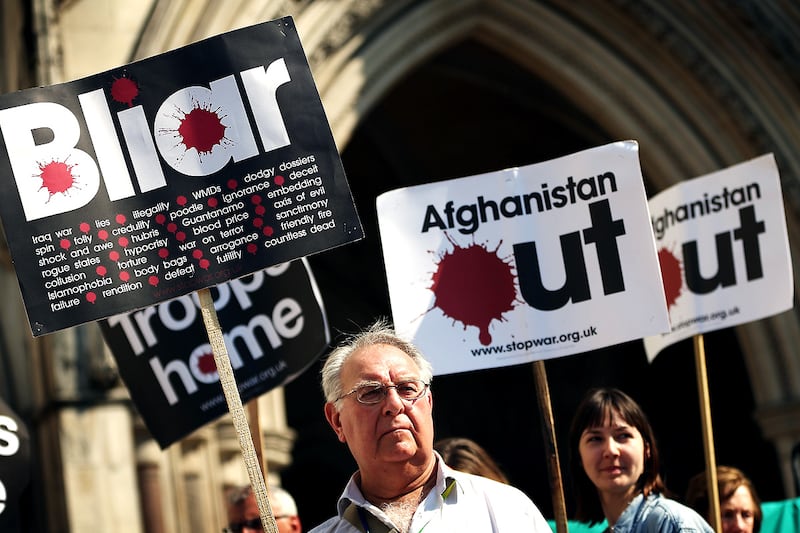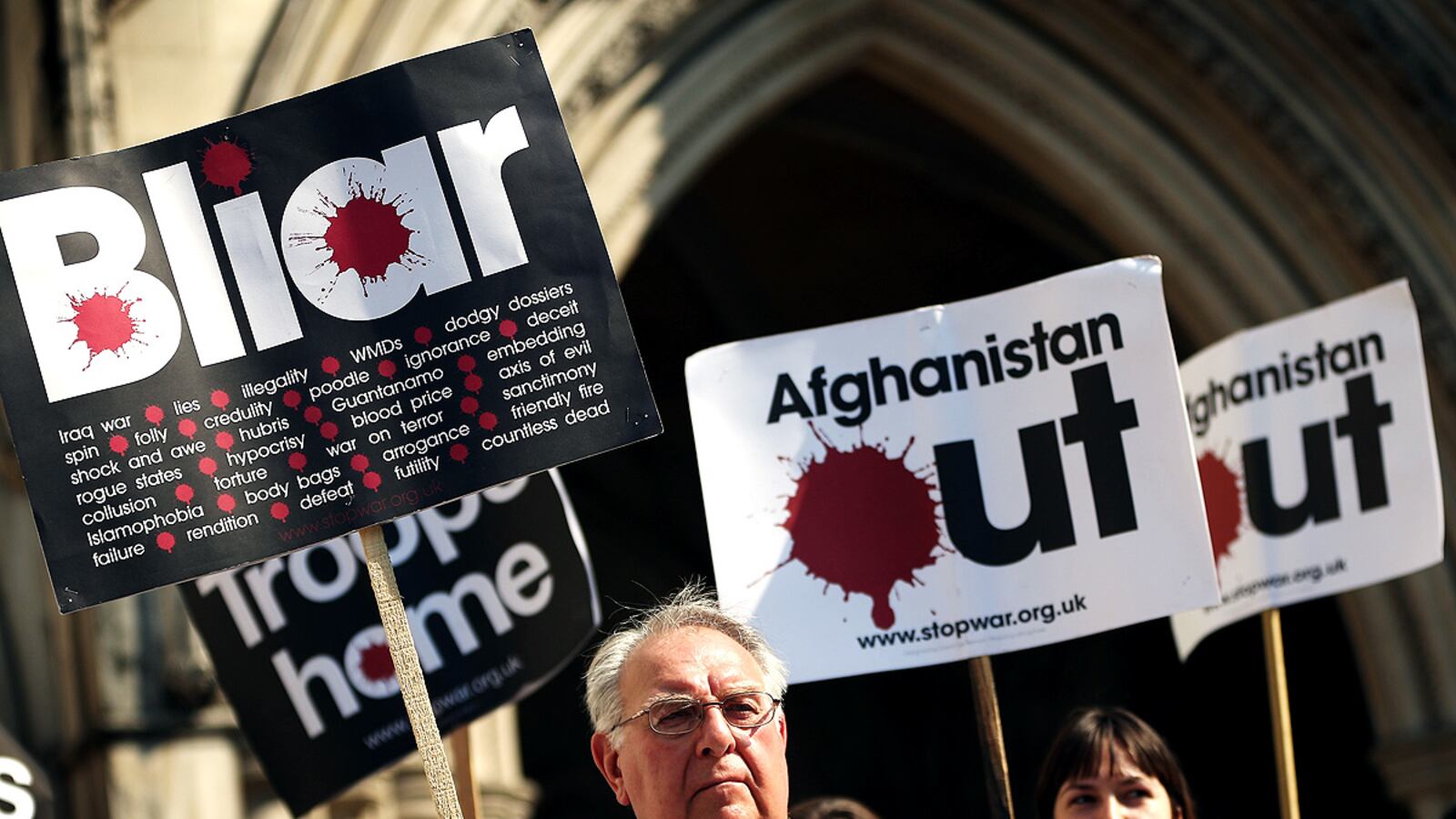Tony Blair took the stand at the Leveson Inquiry in London this morning, making the former prime minister the biggest political name to testify to date before the ongoing public inquiry into the British press.

Blair, who dominated British politics for a decade when his Labour government was in power from 1997 to 2007, described working under threat of running afoul of the country’s powerful news empires, which he described as relentless opponents. “Once they’re against you, that’s it. It’s full on, full frontal, day in, day out—basically a lifetime commitment,” he said. “With any of these big media groups, if you fall out with them, watch out. It is literally unrelenting.”
As to how he dealt with the issue of press influence, Blair admitted that he chose to work with it, instead of trying to change it. “I took the strategic decision to manage this and not confront it,” he said. “But the power of it is indisputable.”
Blair added that political leaders in Britain “have to be in a position where you are managing this major force,” saying the prospect of taking on powerful media interests “would have been a huge battle with little change of winning.”
But Blair had one constant press ally during his tenure—the U.K. media empire of Rupert Murdoch, whose influence over the country’s politics has come under the spotlight as the phone-hacking scandal continues to develop. So far, the scandal has focused intense pressure on the current resident of 10 Downing Street, David Cameron, whose government has been accused of forging too close a relationship with Murdoch and his lieutenants. It was Blair, though, who famously flew to an island in Murdoch’s native Australia to address executives of Murdoch’s News Corp. in 1995, two years before the Murdoch papers switched their support to Labour ahead of Blair’s first election win. And it was Blair who became a godfather to one of Murdoch’s daughters after leaving office. On the stand today, Blair also admitted that he’d let Murdoch in through the back door for meetings at No. 10—a practice that has drawn Cameron considerable heat.
Blair was frank about his pursuit of the Murdoch press, saying he hoped to use it as a “conduit” to voters. Pressed by Lord Justice Brian Leveson, the head of the inquiry, that the island visit had been part of a “charm offensive” by the aspiring prime minister, Blair admitted that this was the case. “Absolutely,” he said. “I wouldn’t have been going all the way around the world […] if it hadn’t been a very deliberate and again a very strategic decision, that I was to go and try and persuade them. The minim objective was to stop them tearing us to pieces, and the maximum objective to win their support.”
He repeatedly described Murdoch as the “key decision maker” in his media empire’s affairs.
Blair remains a controversial figure in Britain, where he has drawn fierce criticism for his close alliance with former U.S. president George W. Bush and support for the Iraq War. In a surprise outburst this morning, a protester made his way into the inquiry and confronted Blair from behind the judge's bench, calling him a "war criminal" before security dragged him away. The incident brought to mind Murdoch's testimony before Parliament this summer, in which he was hit with a shaving-cream pie before his wife, Wendi Deng, repelled the assailant with a right hook. British media identified the protester as David Lawley Wakelin from a group called Alternative Iraq Enquiry.
According to the Telegraph, this wasn't the first time Wakelin had leveled such accusations at Blair--he also once posed as a member of the public during the BBC's Question Time to declare that Blair was willing to "kill in the name of oil". Wakelin, who reportedly entered the court through a door reserved for the judge, has a history of opposing Blair over Iraq. He was arrested on suspicion of breaching the peace and taken into police custody.
Blair quickly denied Wakelin's accusations—which included a claim that JP Morgan had paid Blair $6 million a year for his support of the Iraq War. He said he decided to respond because it was experience that events like this tended to dominate news coverage. Judge Leveson apologized for the incident and pledged an investigation. "I’d like to found out how this gentleman managed to access the court through what is supposed to be a secure corridor," he said. Blair had been greeted outside the Royal Courts this morning by a group of protesters holding signs against the military engagements in Iraq and Afghanistan, and terming the former prime minister a "Bliar."
Since leaving politics, Blair has worked as an envoy in the Middle East and is reported to have established a lucrative business in consulting and lecturing. Pressed on his close relationship with the Murdoch family, he said his relationship with the mogul had changed since leaving office, becoming “different” and “healthier,” with the two becoming closer. “I would never have become a godfather to his child on the basis of my relationship with him while I was in office,” he said. “Now, it’s different. It’s not the same. I don’t feel the same pressures.”
Blair took a defiant line on the question of whether his government was pressured over Murdoch’s commercial interests—which has plagued Cameron in the form of an ongoing controversy over his government’s regulation of a bid by Murdoch’s News Corp. for a majority stake in the British broadcaster BSkyB—claiming that they had more often worked against Murdoch’s interests than not. “I didn't feel under pressure from commercial interests from the Murdoch press or from anybody else,” he said. “The pressure for me was more political.”
Both Cameron and Blair’s successor, Gordon Brown, are expected to make their own appearances before the inquiry in the coming weeks.






